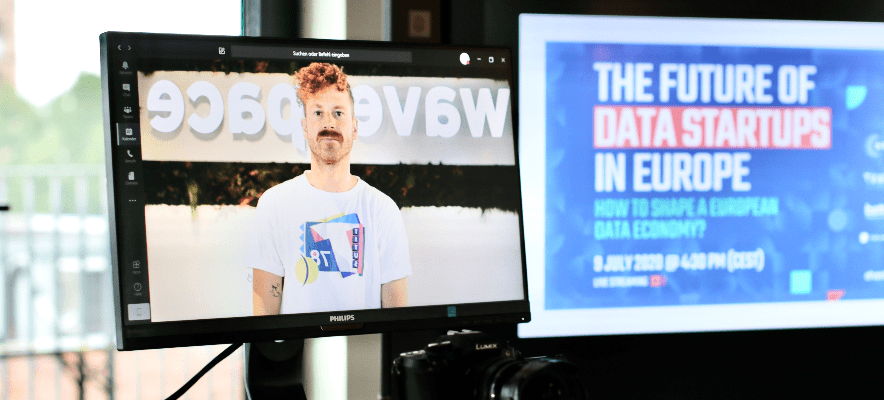- Digital natives are reluctant to engage with traditional insurers
- In the view of the younger target group, insurance products must be easy to understand, transparent, flexible and accessible online.
- Study ‘Insurance for Digital Natives’ combines classic market research, design thinking and lean startup methodology
Berlin, November 2, 2016 – Educated, digitally savvy, and underinsured: digital natives* are finding it difficult to find a proper connection to the insurance market. Information is available online. Among digital natives, the proportion that gets information from websites or comparison portals for insurance is 86 percent. The market average is only 50 percent. Although digital natives as a whole seek out information very actively, the insurance broker has only below-average importance in the information process. Nor are brokers successful with this target group. This can be seen from the rate at which they fail to close sales in this target group, which is far higher than average: whereas 12% of the consultations end without a sale in the market as a whole, for digital natives the rate is 42%.
Digital natives do not follow the traditional distribution path for insurance. Traditional insurers thus risk losing access to this attractive target group and giving it up to the digital ‘insurtechs.’ This is the conclusion of the study ‘Insurance for Digital Natives,’ which was conducted by W&W Digital, a joint venture of Wüstenrot & Württembergische AG and digital consultant and company builder etventure, in cooperation with the market researchers of MSR Insights.
Digital natives seek security but are underinsured
Digital natives are generally open-minded about innovative insurance products and desire coverage. They find it difficult to translate this desire for coverage into a specific insurance product, however. Furthermore, this digitally savvy target group is very reluctant to engage with the traditional sales channels of the insurers.
As a result, the level of coverage for the digital natives as a group is much worse than that of the market as a whole. Although they do have mandatory types of insurance, like car insurance, the likelihood that digital natives will have voluntary types of insurance such as personal liability insurance or household contents insurance is much lower than average.
Transparent, flexible, easy to understand, digital
According to the study, digital natives above all want easy-to-understand, transparent insurance products that are tailored to their specific needs. The amount of time needed to come to grips with this complex and, in the view of this target group, fairly unattractive topic, and to seek out and acquire information and compare offers, is felt to be too great. There is also a desire for clear pricing structures and products that do not have long contract durations but do have flexible options for terminating contracts. The main concern for digital natives is insuring their own selves and their families against illness and disability. Insuring tangible assets like expensive electronic items is of secondary importance. Furthermore, the majority of the young target group expects that insurers will be able to interact with their customers via digital channels and mobile devices, and that insurance products can be managed online.
Insurtechs respond better to the needs of digital natives
These conditions are what makes the alternatives in the insurtech market so attractive for this target group. With their innovative offerings, the young startups in the insurance sector are increasingly seizing opportunities for digital contact with the customer, simplifying the subject of insurance for their customers, and thus becoming serious competitors for traditional insurers, especially in insurance sales.
“The traditional insurance companies have to do a better job of adapting to this young target group, or they risk losing it to the insurtechs. Our study showed that clearly,” says Nils-Christoph Ebsen, Managing Director of W&W Digital. “At the same time, a great many insights can be gleaned from the results of the study for insurers. Insurance products must focus systematically on the specific needs of digital natives and fit into the everyday world of the customer — without overly complex descriptions and opaque extras or pricing models. In combination with a pitch tailored to the target group and a completely digitized customer journey, more young customers can be won over, and insurance sales as a whole can be made more efficient,” says Ebsen.
Classic market research linked with startup innovation methods
For the study ‘Insurance for Digital Natives,’ the partners W&W Digital and MSR Insights selected an innovative style of research. It comprised an analysis of more than 10,000 representative market interviews. This quantitative approach was linked with design thinking and lean startup methods. This involved identifying the needs of the target group with respect to the products and the pitch by conducting individual interviews and customer workshops. On this basis, the concrete development of product concepts could take place, including a real-life marketing test. By designing the study in this way, the researchers achieved a deep understanding of the digital natives target group, and at the same time, they were able to convert their insights directly into products and marketing strategies focused on specific target groups.
*Digital natives: the study defines digital natives as the target group of digitally savvy 20- to 35-year-olds. In this age cohort, one out of four persons now belong to the group of digital natives. With their digital savviness and openness to new technologies, digital natives make up a vanguard that is already showing how the demands on insurers will change.
About the Companies
About W&W Digital GmbH:
W&W Digital GmbH was founded in November 2015 as a joint venture between digital consultant etventure and financial services provider Wüstenrot & Württembergische. The aim of W&W Digital GmbH is to identify innovative digital business models, to validate them and then to successfully launch them on the market. The business models are developed in markets and business areas that are relevant for W&W. This particularly includes models from the areas of capital formation, residential property, financial protection and risk protection. The managing directors are Carolin Kröger from etventure and Nils-Christoph Ebsen from W&W. etventure is responsible for setting up and managing operations at the new business. The company headquarters is in Berlin. www.ww-digital.de
About MSR Insights
MSR Insights analyzes the expectations, satisfaction and behavior of customers, sales partners and employees. In the process, it relies on all the apparatus of market research, including innovative methods of analysis. Through its deep understanding of the insurance sector, extensive benchmarks, and an incisive and action-oriented presentation of results, MSR Insights supplies valuable information and analyses that serve as the basis for informed decision-making. MSR Insights is a company of MSR Consulting Group. www.msr.de
About etventure:
“Only true entrepreneurs drive digital change.” Digital consultant and company builder etventure identifies, develops and tests approaches to digital business across various sectors of the economy. With its four business divisions – Corporate Innovation, People & Education, Innovation Spaces and Startup Hub – etventure has mapped the entire value chain for innovative projects. Its corporate clients include Wüstenrot & Württembergische, Deutsche Bahn, Daimler Financial Services, Franz Haniel & Cie., the SMS group, Putzmeister, and steel distributor Klöckner. etventure was founded in 2010 by Managing Directors Philipp Depiereux, Philipp Herrmann, and Dr. Christian Lüdtke. The etventure team is made up of 200 digital experts and entrepreneurs, who are based at locations in Berlin, Hamburg, Munich, Essen, Stuttgart, Hong Kong, London, New York, Paris and Zurich. www.etventure.com.



